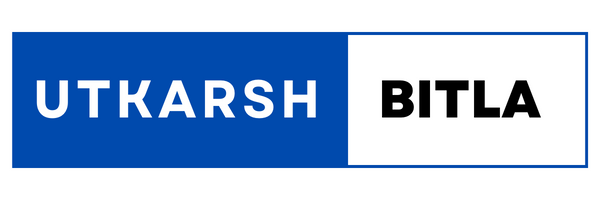This is our third blog on
Abiotic Stress Management. In this blog, we going to cover how proper
irrigation management can be an important tool for Abiotic stress Management. Irrigation
management plays a crucial role in abiotic stress management in agriculture.
Abiotic stresses are environmental factors that can negatively affect plant
growth and development, such as drought, salinity, high or low temperatures,
and waterlogging. These stresses can significantly reduce crop yields and
quality.
Drought mitigation:
Drought is one of the most common and severe abiotic stresses in agriculture.
Proper irrigation management ensures that plants receive adequate water during
periods of water scarcity. It helps maintain soil moisture levels, allowing
crops to withstand dry conditions and continue their growth and development.
Salinity control:
Excessive soil salinity can hinder plant growth and reduce productivity. By
implementing appropriate irrigation techniques such as leaching and controlled
drainage, irrigation management can help reduce salt accumulation in the root
zone and prevent salt stress. It also promotes the removal of excess salts
through proper drainage systems.
Temperature regulation:
Irrigation can influence the microclimate around plants, providing a cooling
effect during high-temperature periods. Sprinkler irrigation, for example, can
reduce the air and leaf surface temperature, minimizing heat stress.
Additionally, irrigation water can act as a heat sink, buffering temperature
fluctuations and reducing the risk of cold stress during frost events.
Waterlogging prevention:
Waterlogging occurs when excess water accumulates in the root zone, depriving
plants of oxygen and leading to oxygen stress. Proper irrigation management
helps prevent waterlogging by ensuring adequate drainage and avoiding
over-irrigation. Well-designed irrigation systems, such as subsurface drainage,
can effectively remove excess water, mitigating the risk of waterlogging.
Nutrient management: Irrigation
can also facilitate nutrient uptake by plants. It helps dissolve and transport
nutrients in the soil, making them available to the roots. By optimizing
irrigation scheduling and application methods, farmers can improve nutrient
efficiency and minimize nutrient imbalances that can exacerbate abiotic stress.
Irrigation Techniques such as drip irrigation,
precision irrigation, and deficit irrigation can be employed to improve water
use efficiency and reduce water stress.
Drip irrigation is a highly efficient irrigation system that delivers
water directly to the root zone of plants in a slow and precise manner. It
involves the use of a network of tubes or pipes with emitters or drippers
spaced along their length. Water is released from these emitters in small,
controlled amounts, allowing for targeted and efficient water application. Drip
irrigation improved water use efficiency, enhances plant growth and health, helps
in weed management as Drip irrigation targets water delivery to the plant root
zone, and allows for precise control over the application of fertilizers and
nutrients.
Precision irrigation, also known as smart irrigation, is an
advanced irrigation technique that aims to optimize water usage by delivering
the right amount of water, at the right time, and in the right place. It
involves the use of technology, data analysis, and precise control systems to
ensure efficient irrigation practices. Precision irrigation relies on various sensors to
gather data on soil moisture, weather conditions, crop needs, and other
relevant parameters. The data collected by sensors is analyzed and processed
using advanced algorithms and decision support systems. This allows farmers to
make informed decisions regarding irrigation scheduling, water application
rates, and crop water requirements. Variable Rate Irrigation (VRI) VRI involves dividing
the field into management zones and applying water at different rates depending
on the specific needs of each zone. This helps optimize water distribution and
reduce water wastage. Farmers can remotely monitor and control irrigation systems
using mobile applications or computer interfaces. Precision irrigation commonly
utilizes drip irrigation or micro-irrigation techniques. These methods deliver
water directly to the root zone of plants, minimizing water losses through
evaporation or runoff. Precision irrigation is a valuable tool for optimizing water
management in agriculture, improving productivity, and promoting sustainable
farming practices.
Deficit irrigation is a water management strategy in which
crops are intentionally subjected to controlled water stress by providing less
water than their optimal requirements. The purpose of deficit irrigation is to
strategically limit water availability during certain growth stages of the crop
while avoiding severe water stress that could cause irreversible damage.
Deficit irrigation
involves carefully timing the application of water stress to specific growth
stages of the crop. It aims to minimize the impact on yield and quality while
optimizing water use efficiency. Different crops have varying levels of
sensitivity to water stress. Some crops can tolerate moderate water stress
during certain growth stages without significant yield losses, while others are
more sensitive and require more precise water management. Monitoring tools, such as
soil moisture sensors and weather data, are crucial for determining the timing
and amount of water to be applied during deficit irrigation. Deficit irrigation
aims to induce mild to moderate water stress rather than severe stress that can
lead to irreversible damage or yield loss. Monitoring the crop closely is
important to prevent crossing the threshold where water stress becomes
detrimental to crop growth and productivity. Deficit irrigation is a water management
approach that can be an effective strategy in regions where water resources are
limited. However, it requires careful implementation and monitoring to ensure
optimal crop performance and minimize potential risks.
In conclusion, Irrigation
management is essential for abiotic stress management in agriculture. It helps
provide adequate water, regulate soil salinity, control temperature extremes,
prevent waterlogging, and optimize nutrient availability. It improves crop yield
and productivity in extreme environmental conditions and reduces the cost of
water and nutrient application. The initial cost is higher for installing these
irrigation systems but these are sustainable and long-lasting. By effectively
managing irrigation, farmers can enhance crop resilience, minimize yield
losses, and promote sustainable agricultural practices.





